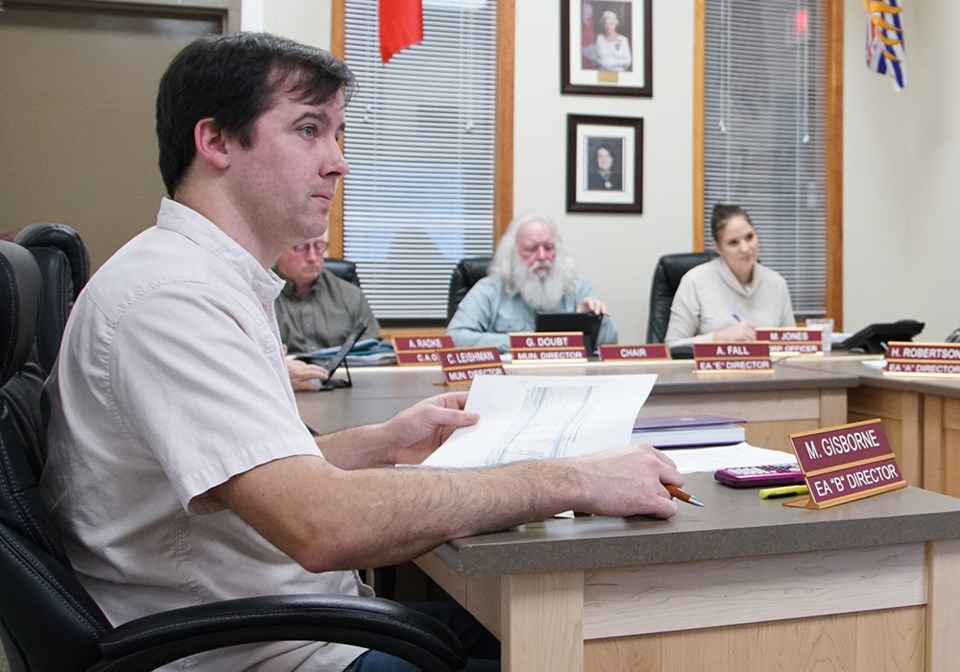After considerable procedural wrangling, qathet Regional District’s (qRD) finance committee is recommending a service contract for public engagement on land use in electoral areas A, B and C.
At the September 7 finance committee meeting, directors considered a recommendation to single source a contract with Arlington Group Planning to explore pros and cons of land use regulation, taking into consideration the options included in the feasibility study land use and development regulatory options final report from April 2020.
Electoral Area B director Mark Gisborne said the recommendation before the finance committee did not include residents of Electoral Area D but he thinks they should be included in the public engagement because Area D residents paid for the study, they will be paying for the public engagement and be paying for any increased costs associated with increased regulations in the electoral areas. He said he would like to propose an amendment to include Area D. There was no seconder for the amendment.
Gisborne then said the Arlington Group brought forward the report the regional district will be using for the feasibility study. He said there were a number of parts of the report he found concerning. He said one was that it was recommended that the regional district consider an increased regulatory framework for a multiphased program and selective approach, starting with public education and consultation on the benefits and drawbacks of zoning in areas A, B and C.
Gisborne said additionally, the report stated building permit regulation is a regulatory tool linked with zoning for nearly all local governments in BC. The report stated that possible interim steps could include voluntary building inspection on a fee-for-service basis for rural residents under City of Powell River, or phased introduction by electoral areas. He said there was a third matter that concerns him, whereupon Electoral Area C director Clay Brander called a point of order and said the conversation was straying far away from the recommendation in front of the committee. Committee chair and city director George Doubt agreed that Gisborne was out of order.
Doubt said there was a motion before the committee to provide a service contract for public engagement on land use and development regulatory options for the three electoral areas.
“I would like you to confine your comments to whether or not the service contract for that public engagement should be adopted by the board,” said Doubt.
Gisborne said his comments pertained to the recommendation, but that Doubt had said Brander had brought up that the discussion had drifted beyond the scope of the motion. Doubt said he had asked Gisborne to stick to the discussion that was before the committee for the service contract for public engagement. Doubt said he was going to ask if the committee would like to sustain the chair’s ruling that Gisborne was out of order.
“I’ve explained the ruling and asked director Gisborne to stick to the motion and the question is: will the body sustain the chair in that ruling?” said Doubt. “It’s been challenged by director Gisborne.”
Gisborne questions ruling
Gisborne called a point of order. He said he hadn’t challenged the chair’s ruling; he was trying to find out what the chair’s ruling was.
“You, yourself, chair, said director Brander brought up a list – that’s not a point of order – that’s points,” said Gisborne. “I’m asking: what is the point of order? What is the specific issue? I’m trying to get clarification.”
Doubt said the point of order Brander raised was that he felt Gisborne was straying from the point of the motion.
“You say you disagree with the ruling of the chair, that’s a challenge,” said Doubt. “I’m trying to deal with that so we can move on.”
Gisborne said he was asking what the ruling of the chair was.
Doubt said the committee was in the middle of making a decision on a point of order that the chair had ruled on.
“I’m going to ask again, all of those in favour of sustaining the chair?” asked Doubt.
Gisborne said he was still confused about the ruling.
“Can you be specific, chair, please?” asked Gisborne.
Doubt said he’d explained it a few times and he was going to call the vote.
Gisborne said again that no one had challenged the chair, but Doubt said Gisborne had.
Gisborne again asked what was the point of order, so he could challenge it if he chose to challenge it.
Doubt said Gisborne had questioned him [Doubt] calling Gisborne out of order. Doubt said he made a ruling that Gisborne needed to stick to the concerns addressed particularly in the resolution, and that he was calling for a vote. He asked the committee for a vote on who was in favour of sustaining the chair.
Doubt said there were four people in favour of sustaining the chair. Doubt asked Gisborne if he was opposed and Gisborne said he couldn’t vote on something about which he didn’t know the point.
Doubt said the motion to sustain the chair was carried.
The recommendation for the service contract was also carried, with Gisborne opposed.



